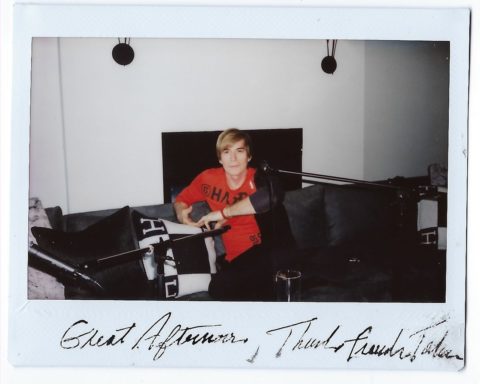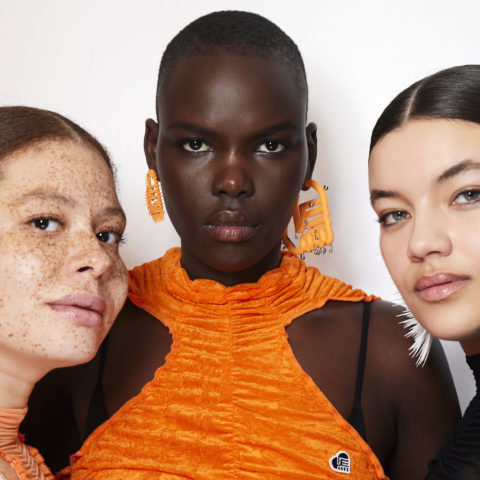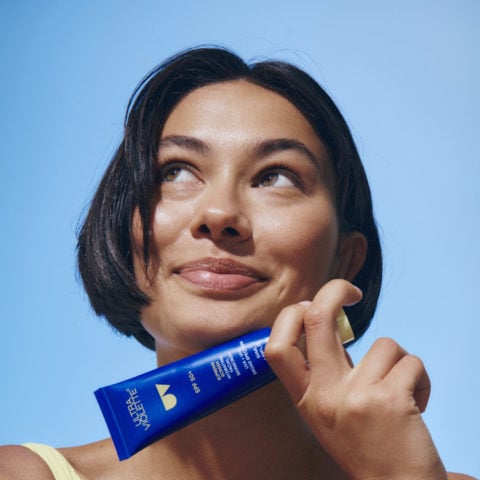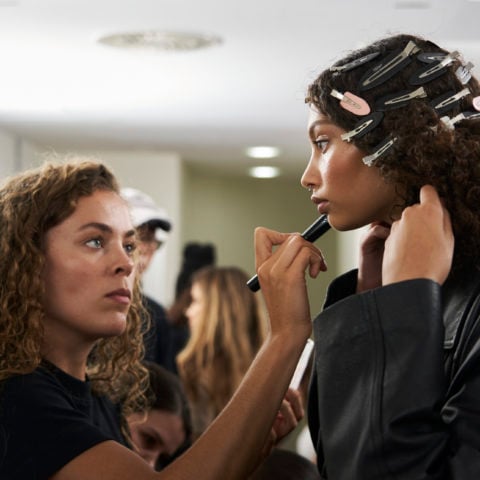Toronto Podcast Breaking Beauty‘s Interview With MAC Co-Founder Frank Toskan Is a Must-Listen

Since launching in March of 2017, Toronto-based podcast Breaking Beauty has interviewed an impressive list of founders, from millennial faves like Glossier‘s Emily Weiss, to French skincare disrupters like Biologique Recherche‘s Dr. Philippe Allouche and clean beauty hero/makeup artist Rose-Marie Swift of RMS Beauty. But today they’re dropping part one of their talk with a true beauty trailblazer, M.A.C Cosmetics co-founder Frank Toskan who started the brand in Toronto in 1984 with the late Frank Angelo. “With all the ‘woke’ brands right now, we needed to talk to the one O.G. brand that truly busted down beauty barriers,” hosts Jill Dunn and Carlene Higgins said by email. “Without M.A.C, it would be hard to imagine that brands like Milk Makeup, Too Faced or Fenty Beauty would be around.” Toskan was one of the podcast’s most requested guests and the hosts were dying to hear his stories. “We just knew Frank would have a full vault.”
Tracking him down wasn’t easy though. Without the help of either Estee Lauder (who owns M.A.C) or even LinkedIn, Dunn and Higgins dug for about a year until they found a mutual source, which they cannot reveal (ah, COME ON!) to connect them. Toskan now owns a restaurant called Impact Kitchen and is working closely with U of T faculty member Andrea Benoit on a book scheduled for release next year entitled VIVA M.A.C: AIDS, Toronto Fashion and the Philanthropic Practices of M.A.C. Cosmetics, but he was eager to share the M.A.C origin story, especially given that VIVA Glam will celebrate its 25th anniversary next year.
Below are some highlights from their conversation, which is Toskan’s first interview in four years:
On building the culture around M.A.C’s original mantra: All Ages, All Races, All Sexes:
“None of what we did was really calculated. It all just evolved from who we were as people. I couldn’t understand why there wasn’t a lot of makeup for women of colour. I have lots of friends of colour, so there was so much diversity, especially in New York. So we developed colours that really worked on all people. We had 35 foundation colours from blue-black skins to palest of porcelain skins and all gamuts from cools, green undertones, yellow undertones, red undertones. We covered everybody’s skin tone in our range of foundations.”
On leading the charge with inclusive foundation hues, decades before Fenty Beauty’s 40 shades:
“Early on we didn’t have the ability to package that many skin tones. So we were doing it by selling pigment and people were able to mix their own pigments, which allowed them to participate in making their own products as well, to some degree. We would sell yellow pigment or blue pigment or red pigment so you could mix it into your foundation an alter it because you don’t need that many different products. I mean, you could take a skin cream and mix into your foundation, you could stretch your foundation by putting it into a different medium. So, we always tried to limit the number of products we had by utilizing different mediums.”
On the moment that inspired VIVA Glam:
“That’s one of the proudest accomplishments, and I’m proud of the company to have continued that initiative. Back in the eighties, it was a very sad and dark time. And when my close friend was dying of AIDS, I was called into the hospital. They told me to put on a robe and a mask and gloves and I went in and I was told to keep my distance. And I realized how horrible that must have been for him to be looking at these people looking at him like a leper. And that ignited something in me, you know, an anger that I took with me. It came to visit me later on and I knew that someday that moment would inspire me to do something with that, because it was a very sad time. So his passing didn’t go in vain. I attribute this success to [him] and I’m very grateful that I did something with that opportunity that I was offered. That was such a horrible time in our lives, we lost a lot of people. I never wanted this to look like a marketing scheme. We made sure that every penny went back to what it was intended for. We demanded that our retail partners didn’t take a mark up. Our sales staff never took any commissions on this product and so we sold it right through at 100 percent.”
On Frank Toskan’s next endeavour:
“I also started a new business, which is totally unrelated, but related in some way. As I grew older, I realized how important health was. And most of who we are is obviously about what we eat. Food has always been a passion of mine and I thought I would take a stab at creating this brand, Impact [Kitchen]. I met someone who became my trainer years ago, and we collaborated on some ideas and we developed an incredible menu. So we started this restaurant that basically follows a Paleo Diet. We are gluten free, sugar free—all of the things that tend to create havoc with our bodies. And I found that eating well made me feel better. It gave me much more clarity. I did beauty from the outside. We’re going to have some amazing stuff coming down the pipeline. We’ve got a second location on Adelaide, a third location on Yonge and Alcorn and we’re opening up in Miami in a year, in South Beach. Hey, I’ve got some time left; I better make good use of it. I’d love to do more education around healthy eating because obesity is the next crisis and teaching young children how to eat properly, going into schools and delivering great lunches is something that I want to work towards.”
To download the episode, head to Apple Podcasts, Spotify, Stitcher, Google Play, or breakingbeauty.com. Look out for part two tomorrow.







